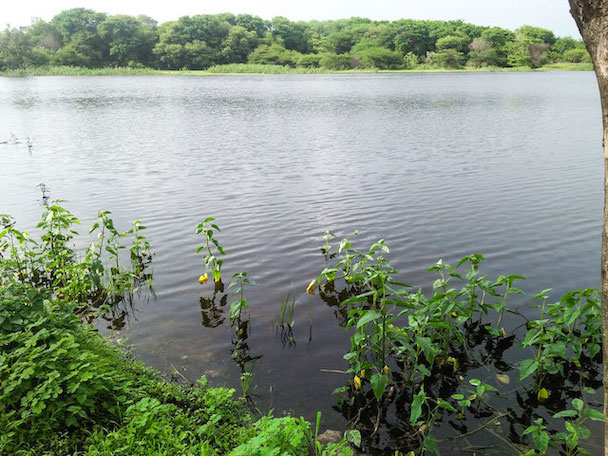Water is one of the most valuable and scarce resources in India. Our country is home to a population of 1.4 billion, accommodates nearly 18% of the world’s population. Unfortunately, it has only 4% of the world’s freshwater resources and pumps out of almost 25% of its groundwater.
The 2018 Composite Water Management Index (CWMI) noted that 6% of economic GDP would be lost by 2050, while water demand will exceed the available supply by 2030, threatening India’s Health, Economy, Environment, and Food Supply. Adding to the woes, the estimated economic burden of waterborne diseases stands approximately at US $600 million due to microbial and geogenic contaminants in the surface and groundwater.
With the water crisis looming large, about 2,00,000 people die every year due to inadequate water, sanitation and hygiene. Moreover, The Estimates Committee of Parliament (2015) observed that piped water supply was available to only 47% of rural habitations, out of which only 15% had household tap connections.
India has set an ambitious goal – as part of Jal Jeevan Mission (JJM), to provide functional Household Tap Connection, piped water services to its entire population in both rural and urban settings at an outlay of $90 billion by 2025. Under the Union Government, the Jal Jeevan Mission (Rural) at $50 Billion, to provide every rural household with functional household tap connection by 2024 was announced by Prime Minister Narendra Modi 2019 Independence speech.
Now, Finance Minister Nirmala Sitharaman in the 2021 Union Budget, announced a similar programme Jal Jeevan Mission (Urban) at $40 Billion in 2021 that will provide universal coverage of water supply to all households through 2.68 crore functional household tap connections in urban covering all the all 4,378 statutory towns in accordance with SDG Goal 6.
Under the Jal Jeevan Mission (Rural), the plan is to provide 12.50 Crore households with tap water connections by the year 2024, which means adding at least three crore households every year across the country to whom tap water connections will be provided. To demonstrate the Mission’s efficacy, Rs. 50,011 Crore has been allocated in 2021-22, a quantum increase of over Rs. 38,000 Crore from the last budget.
The piped water connections will only provide water to the households, it will also create infrastructure in 6 lakh villages, leading to a spike in demand for taps, faucets, pipes etc., in homes. There will also be an increase in construction materials like cement, bricks, iron etc.
Since the year 2019, when the Jal Jeevan Mission was announced, over 3.66 crore families living in the rural hinterland now have access to tap water, covering about 6.90 crore families in India in a short span of 3 years. The clean water in the comfort of their homes has helped improve the quality of the lives of families in about 80,000 villages.
Seeing the programme’s success, it is planned that families in more than 110 districts comprising over 1 lakh villages will get tap water in their homes. Some states like Goa, Telangana and Puducherry have 100% tap water connection at home, and about 32% of households have been provided with tap water connection since the launch of the Mission.
The private sector is participating in creating sustainable solutions and realizing this piped water dream. New water purification technologies backed by automation and artificial intelligence, application of IoT technology, sensors, and data analytics approach coupled with real-time monitoring and tracking water quality, water consumption, and filter use are being followed, which assures safe drinking water. Reliable tap water to every home will not only promote well-being and economic prosperity but majorly alleviate the drudgery of women and girls by removing their burden of fetching water from a distance, thus improving the quality of life and enhancing the ease of living of people in villages.
Jal Jeevan Mission (Urban) will promote the circular economy of water by developing a city water balance plan for each city focusing on recycling/ reuse of treated sewage, rejuvenation of water bodies, and water conservation. Pey Jal Survekshan will be conducted in cities to ascertain the equitable distribution of water, reuse wastewater, and map water bodies concerning quantity and quality of water through a challenging process.
A Technology Sub-Mission will support these programs for water that will bring in the latest global technologies in the field of water and Information, Education and Communication (IEC) campaign to spread awareness among masses about water conservation. It has a reform agenda focusing on strengthening urban local bodies and water security of the cities.
Significant reforms are reducing non-revenue water to below 20%; recycling of treated used water to meet at least 20% of total city water demand and 40% for industrial water demand at the State level; dual piping system, electric vehicle charging points; Wi-fi infrastructure in new buildings; unlocking value and improving land-use efficiency through adequate urban planning; GIS-based master plans of the cities; raising funds through the issuance of municipal bonds and rejuvenation of water bodies. The total outlay proposed for JJM(U) is Rs. 2,87,000 crore which includes Rs. 10,000 crores for continuing financial support to AMRUT Mission to promote public-private partnership (PPP). It has been mandated for cities with a million-plus population to take up PPP projects worth 10% of their total project fund allocation.
India needs to look at water in two ways: What is already done with water and what needs to be done for better supply of water. Though the situation is changing, the Government should put more emphasis on developing water infrastructure and maintenance of the existing water programs. The emergence of Covid-19 has further accentuated the need for clean water and the maintenance of good WASH practices. Speed, sustainability, prevention of slippage, retrofitting and decentralization are key to making piped water to each home happen in the county. Where there is a will there is a way!
Views of the author are personal and do not necessarily represent the website’s views.
 Poonam Sewak leads the Programs & Partnerships unit at Safe Water Network India. She founded the organization’s flagship sustainable and affordable social enterprise model — locally branded as iJal — which has consistently provided safe drinking water to communities throughout India. Poonam is a health professional with more than 25 years of experience in education, consulting, training, and communication. This experience includes consultation for the pharmaceutical industry on medico marketing and drug registration, as well as the United Nations Asia Pacific Center for Technology Transfer concerning tools to promote women entrepreneurship. Poonam holds a Master’s degree in Pharmacy from Nagpur University, and was recognized as a Gold Medalist in Pharmacy during her graduation.
Poonam Sewak leads the Programs & Partnerships unit at Safe Water Network India. She founded the organization’s flagship sustainable and affordable social enterprise model — locally branded as iJal — which has consistently provided safe drinking water to communities throughout India. Poonam is a health professional with more than 25 years of experience in education, consulting, training, and communication. This experience includes consultation for the pharmaceutical industry on medico marketing and drug registration, as well as the United Nations Asia Pacific Center for Technology Transfer concerning tools to promote women entrepreneurship. Poonam holds a Master’s degree in Pharmacy from Nagpur University, and was recognized as a Gold Medalist in Pharmacy during her graduation.
Thank you for reading the column. Please drop a line and help us do better.

